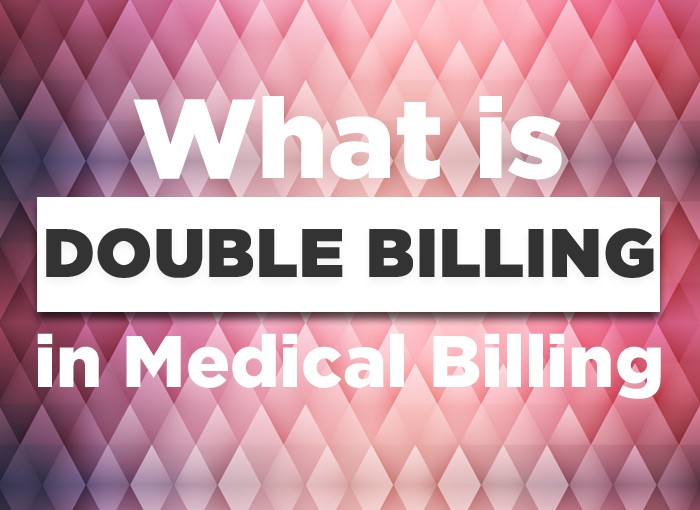What is Double Billing in Medical Billing
The health care industry runs on continuous cash inflow from various sources like clients, suppliers, and health insurance payers, etc. This vast network connecting insured patients and doctors is susceptible to hoax. The most common sharp practices that may occur in a hospital at the time of billing, include up-coding, unbundling, and double billing. Out of all these practices, double billing generally occurs at a larger scale.
What is Double Billing?
In medical billing, double billing is commonly defined as a provider’s attempt to bill Medicare/ Medicaid, be it a private insurance company or the patient for the same treatment, or when two providers attempt to get paid for services rendered to the same patient for the same procedure, on the same date. Double billing also occurs when a provider attempts to charge more than once for the same service For example, by billing using an individual code and again as part of a bundled set of tests.” Double billing is also known as duplicate billing
In double billing, the provider sends a bill to both Medicaid and the private insurance company. Sometimes the provider may even send the same bill to the insured patient. In some cases, two providers may ask for payment in the name of the same patient for the same procedure on the same date.
In other words, the provider bills the client twice for the same services. Avoiding detection of the provider may alter the date of service, description, and patient’s name. Sometimes the provider may even alter the provider’s name..
However, there are times when the provider bills the client twice without checking whether the procedure has been already billed or not. In such a case, the double billing occurs unintentionally.
It is important to note that double-billing is not ethically correct and is considered illegal.
Types of Duplicate Claims in Double Billing
Whenever a provider bills the client twice, the chances of submitting duplicate claims are quite high. The Centers for Medicare and Medicaid Services (CMS) defines duplicate claims as “any claims paid across more than one claim number for the same beneficiary, CPT/HCPCS code and service state by the same provider.” In double billing, duplicate claims are rejected with denial reason codes suggesting ‘exact’ and ‘suspect’ claims.
Basically, there are two types of duplicate claims::
1. Exact: Refers to a claim having the same information as to the previously submitted claim.
- CMS evaluates the following to determine a duplicate claim:
- Provider number
- Type of service
- Place of service
- Billed amount
- HIC number
- From the date of service
- Procedure code
- Through the date of service
- If the CMS finds the exact match for the duplicate claim then it’ll come back to the provider as a denied claim.
2. Suspect: Refers to a claim with NOT SAME but similar information to the previously submitted claim. The claim will come back to you labeled as ‘suspect’ if it has:
- Matching beneficiary information
- Matching provider identification
- Include the same date of service
Double billing can result in delayed claims and ultimately in loss in payment. It may consequently affect the provider’s reputation and invite illegitimate investigation.




